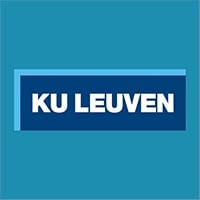PhD position in neutrophil biology in diabetes: bioinformatics meets wet lab
Position Details (PhD Research Project)
The Leuven Diabetes Lab, headed by Prof. Chantal Mathieu, is part of the Clinical and Experimental Endocrinology Division within the CHROMETA Department at KU Leuven, combining clinical insight with cutting-edge experimental research to study type 1 diabetes.
We are seeking a highly motivated PhD candidate to investigate the role of neutrophils in the development of autoimmune type 1 diabetes. Our lab has a strong track record in uncovering the immunopathogenesis of type 1 diabetes using both mouse models and human studies.
We apply state-of-the-art technologies, including spectral flow cytometry, single-cell and spatial transcriptomics, and proteomics on mouse and human pancreas tissue. Our mission is to translate discoveries from bench to bedside, advancing understanding of disease development and designing novel disease-modifying approaches to improve outcomes for people with type 1 diabetes.
Project
This project investigates the role of neutrophils in type 1 diabetes using whole blood or sorted cells, along with single-cell transcriptomics and spatial transcriptomics/proteomics datasets. You will collaborate with core facilities such as the VIB Single Cell Core and KU Leuven LISCO to leverage state-of-the-art technologies. Our findings indicate that circulating human neutrophils are transcriptionally heterogeneous. A key question is whether neutrophils in the circulation reflect underlying processes in the pancreas. To address this, we have access to INNODIA datasets from people at risk of or newly diagnosed with type 1 diabetes, as well as nPOD pancreatic tissue samples from people with type 1 diabetes. This allows us to study the involvement of neutrophils in both blood and pancreatic tissue and to assess their potential as effector, predictive, and therapeutic targets. In collaboration with core facilities, we have optimized and generated single-cell and single-nucleus datasets on immune cells and tissue sections, providing a unique opportunity to explore neutrophil biology in the context of type 1 diabetes.
Profile
Essential
- Master’s in bioinformatics, data science, biomedicine, bioengineering, biotechnology or related fields
- Programming experience in Python and/or R
- Excellent communication skills and fluency in English
- Proactive, rigorous, solution-oriented, and a critical thinker.
- A collaborative mindset and enthusiasm to work in an international and interdisciplinary environment
Bonus but not required
- Experience in single-cell and spatial omics data analysis
- Experience with highly multiplexed flow cytometry
- Background in immunology
Offer
- The opportunity to work on high-impact, scientifically exceptional research topics in immunology and type 1 diabetes.
- A stimulating and supportive international research environment, with English as the primary working language.
- Integration into a dynamic team analyzing single-cell and spatial multi-omics datasets.
- Access to state-of-the-art infrastructure and cutting-edge technologies.
- A flexible work schedule with substantial autonomy in planning your day.
- Dedicated training programs through VIB and KU Leuven to broaden your expertise and enhance your skill set.
- A strong network of international collaborators, fostering opportunities for interdisciplinary exchange and career development.
Interested?
For more information, please contact Dr. Conny Gysemans, tel.: +32 16 37 74 54, mail: [email protected] or Prof. Dr. Chantal Mathieu, mail : [email protected].
KU Leuven strives for an inclusive, respectful and socially safe environment. We embrace diversity among individuals and groups as an asset. Open dialogue and differences in perspective are essential for an ambitious research and educational environment. In our commitment to equal opportunity, we recognize the consequences of historical inequalities. We do not accept any form of discrimination based on, but not limited to, gender identity and expression, sexual orientation, age, ethnic or national background, skin colour, religious and philosophical diversity, neurodivergence, employment disability, health, or socioeconomic status. For questions about accessibility or support offered, we are happy to assist you at this email address.



 KU Leuven
KU Leuven